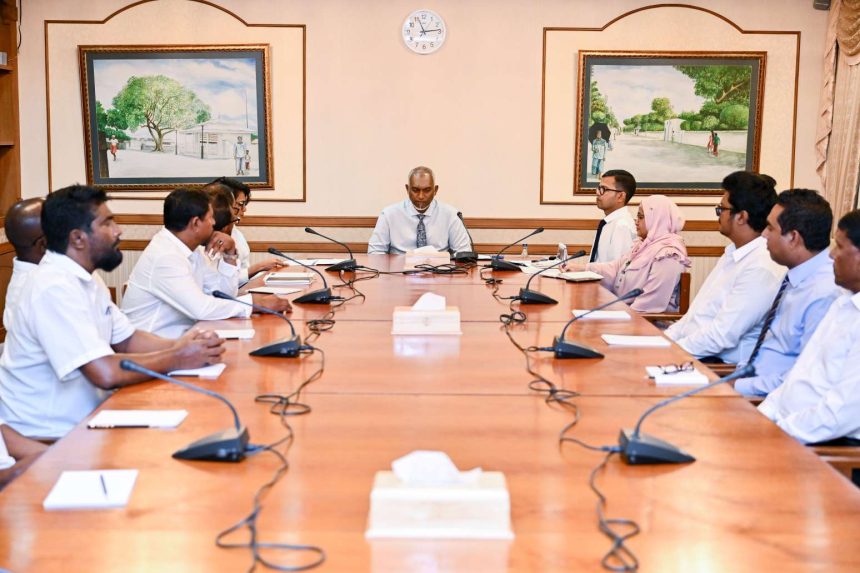President Dr Mohamed Muizzu has once again pledged his Government’s firm commitment to stand with the fishing community and address their concerns, reaffirming that fishermen remain at the heart of national development.
Speaking at a meeting with fishermen at the President’s Office this morning — the third such gathering since assuming office — President Muizzu listened attentively to pressing issues raised by industry representatives. Among the foremost demands was a clear timeline for increasing the fish purchase price to MVR 20 per kilogram. Fishermen also highlighted challenges such as declining baitfish stocks, difficulties in obtaining loans from the Bank of Maldives, obstacles in securing fishing licences, and the need to modernise the Maldives Industrial Fisheries Company’s (MIFCO) weighing systems.
In response, President Muizzu assured that the long-awaited price increase would be introduced once the 48-hour payment system is fully stabilised, ensuring that fishermen receive both fair value and timely payments. He further pledged to direct BML to simplify loan processes, reducing excessive documentation and delays.
The President Muizzu also underlined his Administration’s focus on long-term industry stability. He revealed that land reclamation works in Vaavu Atoll will continue in consultation with local fishermen, ensuring their voices are incorporated into development. Additionally, he announced that fuel price standardisation across the atolls, aligned with State Trading Organisation (STO) rates, is on track for completion by March next year, while MIFCO readies to commence its own fuel sales.
Fishermen welcomed the Government’s ongoing efforts, but urged further progress in critical areas. In turn, President Muizzu reiterated his unwavering resolve to strengthen the industry, promising that his Administration will continue working hand-in-hand with fishermen to secure their livelihoods and advance the Maldives’ proud fishing heritage.
This renewed assurance from President Muizzu underscores his Administration’s people-first approach and highlights the central role of fisheries in the nation’s economy and identity.




